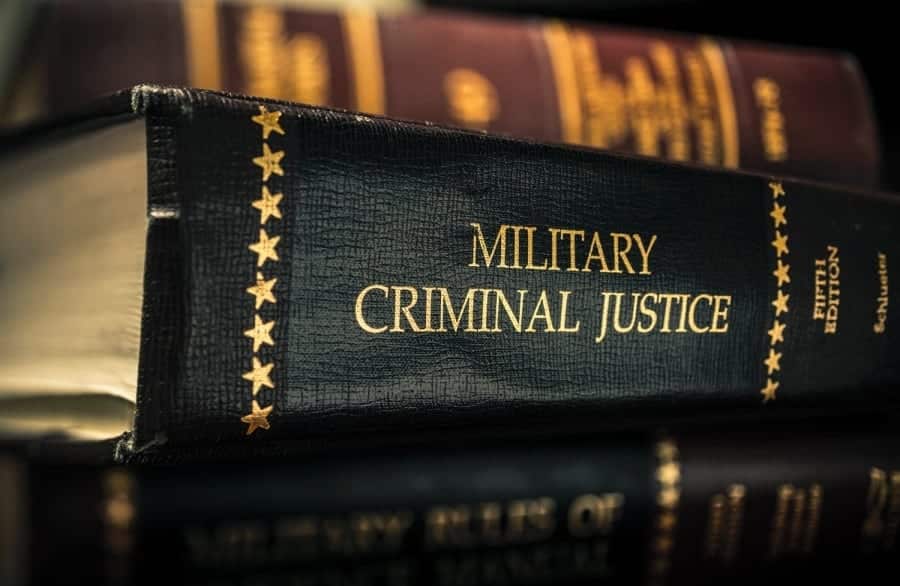Colorado Gun Laws: What You Need to Know About Concealed Carry
June 25, 2025

Differences between Municipal and State Court in Colorado
Are Colorado Marijuana Laws Moving Backward?
Posted by: Jacob E. Martinez
Category: Military Defense
When you first joined the military, you may not have realized that you would be under a new set of laws. The Uniform Code of Military Justice (UCMJ) is separate from civilian law, but it is upheld in a similar manner.
The UCMJ contains many “obvious” laws that civilians already have to obey, like laws against murder and theft. However, in addition to the laws servicemen and women have practiced as civilians, the UCMJ also adds laws that might surprise civilians.
For example, laws against adultery aren’t consistently found in civilian law throughout the country (and if they are, they are rarely enforced), but are included in the UCMJ. Indecent language is also a crime in the military – something that civilians never have to worry about.
At the end of the day, though, members of our armed forces are still citizens of the United States. So is there a time when the rules of UCMJ don’t apply and servicemembers are only bound to civilian law?

Even if a member of our military is off base, they are still held to the UCMJ. The code is enforced by federal and military officers, and local officers do not have the authority to carry out an arrest. If a local police officer catches the servicemember cheating, however, they are not required to report the incident to nearby officers who do have authority to handle the case.
Here’s where things become even more interesting, though. In situations where a servicemember breaks civilian laws and the laws of the UCMJ, they might have to deal with two different types of enforcement. For example, if a servicemember is charged with driving under the influence, local authorities can take them into the station and begin criminal proceedings. Additionally, they may also have to deal with enforcement back at the base.
What happens when a servicemember decides to leave the military by retiring?
Incredibly, they are still held to the UCMJ. All personnel in the military, whether they are active-duty, reserve & guard, or retired, are held to the UCMJ. In situations where a person has left for other reasons, they will have to adhere to civilian law rather than the UCMJ.
When in doubt, if you are a member of our military, assume that you will be held to the UCMJ, rather than civilian law. If you are overseas, conduct yourself in a way that would be allowed by the UCMJ. Even across international borders, military members have to abide by it.
This does not mean that you are exempt from obeying the laws of the country that you are in. There may be some differences based on what the host nation allows. Usually, there will be negotiations between the base and representatives from that nation. Members of the military will be briefed on these changes before they enter a base.
Charged with violating the UCMJ? Talk to a Denver criminal defense attorney today.
About the Author:
Denver-based criminal defense and DUI attorney Jacob E. Martinez is a knowledgeable and experienced litigator with a record of success providing innovative solutions to clients facing criminal charges of any severity. Mr. Martinez has been designated a Top 100 Trial Lawyer by the National Trial Lawyers and has been awarded both the Avvo Client’s Choice Award and Avvo Top Attorney designation, evidencing his reputation for his exemplary criminal and DUI defense work and high moral standards.
Jury Trial - Not Guilty
Jury Trial - Not Guilty
Arapahoe 1st Degree Assault/Vehicular Assault
Jury Trial - Not Guilty
Denver Domestic Violence Assault Case
Jury Trial - Not Guilty
Denver D.V. Assault
Jury Trial - Not Guilty
Denver Careless Driving Resulting in Death
Jury Trial - Not Guilty
Jefferson County Felony Menacing
Jury Trial - Not Guilty
Adams County DUI
Jury Trial - Not Guilty
Jefferson County DUI
Jury Trial - Not Guilty
Jefferson County DUI
Jury Trial - Not Guilty
Jefferson Vehicular Assault/DUI
Jury Trial - Not Guilty
Jefferson County DUI
Jury Trial - Not Guilty
Boulder County DUI case
Jury Trial - Not Guilty
Arapahoe County DUI case
Jury Trial - Not Guilty
Adams County DUI case
Jury Trial - Not Guilty
Douglas County DUI case
Jury Trial - Not Guilty
Gilpin County DUI case
Dismissed
Broomfield County Probation Revocation case
Dismissal
Arapahoe County DUI case
Deferred Judgment
Arapahoe County DUI case
Deferred Judgment
Douglas County DUI case
Deferred Judgment
Larimer County DUI case
Deferred Judgment
Arapahoe County DUI Case
Deferred Judgment
Denver Felony Burglary Case
Deferred Judgment
Arapahoe County DUI case
Dismissed
Arapahoe County Protection Order Case
Dismissed
Golden Destruction of Property case
Dismissed
Jefferson County Protection Order case
Dismissed
Jefferson County Domestic Violence case
Dismissed and Sealed
Jefferson County DUI case
Dismissed
Denver Major Traffic Offense case
Dismissed and Sealed
Broomfield County Domestic Violence case
Dismissed
Summit County DUI Revocation
Dismissed
Denver DUI Revocation
Dismissed
Denver DUI Revocation
Dismissed
Denver DUI +.2 Involving Accident and Injury case
Dismissed
Denver DUI/Habitual Traffic Offender case
DISMISSAL
Denver District Aggravated Theft
Dismissed
Greenwood Village Assault case
Dismissal
Elbert County DUI
Dismissed
Arapahoe County Domestic Violence case
Dismissal
Jefferson County DUI
Dismissal
Denver Municipal Assault
Dismissed
Boulder County Domestic Violence Assault case
Dismissed
Wheat Ridge Assault case
Dismissed
Jefferson County DUI case, with 2+ Prior Convictions
Dismissed
Arapahoe County Domestic Violence case
Dismissed
Broomfield County Domestic Violence case
Dismissed with No Charges Filed
Jefferson County Felony Theft case
Dismissed
Arapahoe County Felony Theft case
Dismissed
Boulder County Felony Theft case
